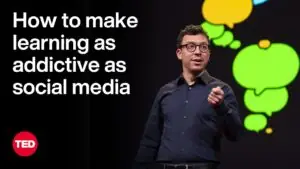
While it’s widely accepted that achieving fluency in a second language is challenging, some language learners have overcome the typical fluency barriers and claim to have reached a level of understanding where they feel akin to native speakers. This phenomenon has triggered a debate among language learning communities about the true meaning of language mastery.

✅ AI Essay Writer ✅ AI Detector ✅ Plagchecker ✅ Paraphraser
✅ Summarizer ✅ Citation Generator
Key Takeaways:
- Feeling like a native in a second language is possible but is often more about immersion and cultural understanding than perfect grammar or vocabulary.
- The emotional connection and thought process in the second language are vital for reaching this level of proficiency.
- A common challenge is overcoming the “translation barrier”, which is the mental process of translating thoughts from one’s native language to a second language.
The Journey to Feeling Like a Native
Many language learners start with a basic interest or need to learn a new language but soon find themselves drawn into a more profound journey of cultural immersion. They become not only students of the language but also of the people, traditions, and mindsets that shape it. This immersive experience often makes learners feel a deep connection with the language, making them feel “native-like”.
This deep connection is often more about cultural understanding and emotional affinity than perfect grammar or vocabulary. The ability to understand idioms, jokes, and cultural references can significantly contribute to a sense of native-like fluency. This cultural acclimatization also enhances communication skills, helping learners interact more naturally and confidently in various settings, from professional contexts to social gatherings.
The Emotional Connection
While vocabulary and grammar are essential components of language learning, they alone do not guarantee a sense of native-like fluency. According to various learners, one of the crucial components of feeling like a native speaker is the ability to think and feel in a second language.
This emotional connection implies being able to process thoughts and emotions directly in the second language, without the need to translate them from the native language. This capability allows for more spontaneous and authentic reactions and interactions, much like a native speaker would have.
Overcoming the Translation Barrier
A common challenge for many language learners is the “translation barrier”, the mental process of translating thoughts from one’s native language to a second language. Overcoming this barrier can be a significant milestone on the path to native-like fluency.
It often requires an extended period of full immersion in a context where the second language is the primary means of communication. This could be living in a country where the language is spoken or working in an environment where the second language is used predominantly. Such exposure forces the brain to adapt and start processing thoughts directly in the second language, thereby eliminating the need for translation and providing a more fluid and intuitive language experience.
In conclusion, while reaching native-like fluency is a complex process, it is attainable for dedicated learners. It goes beyond mastering grammar and vocabulary and delves into the realm of cultural understanding, emotional connections, and a direct thought process in the second language. By overcoming the translation barrier, language learners can achieve a sense of native-like fluency, enhancing their communication skills and overall language learning journey.
The Many Perks of Being Bilingual
Being bilingual is not just about having a wider communication range; it’s an asset that carries a variety of benefits, enriching personal development, cognitive abilities, and offering sociocultural advantages. Here’s a rundown of some of the key perks.
- Cognitive Benefits: Bilingual individuals often exhibit enhanced problem-solving skills, as the mental juggling between languages improves the brain’s executive functions. They also tend to have better memory recall, attention span, and multitasking abilities. Moreover, studies suggest that bilingualism might delay the onset of dementia and other age-related cognitive decline.
- Professional Advantages: In today’s globalized world, bilingualism is a sought-after trait in many professions. It can boost employment prospects and earning potential, opening doors to international opportunities and roles that require cross-cultural communication.
- Sociocultural Opportunities: Bilingual individuals have the advantage of immersing themselves in different cultures and societies more deeply. They can enjoy literature, music, and films in their original language, experience authentic interactions with locals when traveling, and gain a richer understanding of the world.
- Personal Development: On a personal level, bilingualism fosters open-mindedness and adaptability. It enables individuals to perceive the world from different linguistic and cultural perspectives, encouraging empathy, and a more nuanced understanding of diverse cultures.
In essence, being bilingual is a beneficial skill that goes beyond language itself. It influences cognitive functions, professional opportunities, socio-cultural experiences, and personal development, proving that the effort invested in learning a second language truly pays off in many ways.
Related articles:
From ‘Achievement Gap’ to ‘Education Debt’: Why Language in Education Matters
Tactics to Elevate Your Language Skills from B2 to C1 Level
New Strategies Unveiled to Boost English Learner Success in High Schools
Follow us on Reddit for more insights and updates.





Comments (0)
Welcome to A*Help comments!
We’re all about debate and discussion at A*Help.
We value the diverse opinions of users, so you may find points of view that you don’t agree with. And that’s cool. However, there are certain things we’re not OK with: attempts to manipulate our data in any way, for example, or the posting of discriminative, offensive, hateful, or disparaging material.